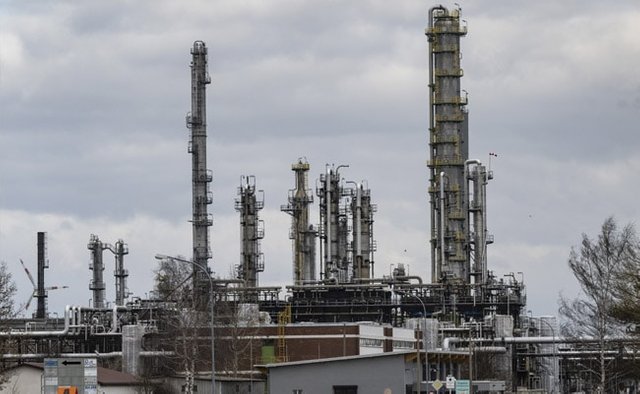Russia-Ukraine War: The PCK treatment facility in the German town of Schwedt has been handling unrefined petroleum from Russia since before reunification, yet with a restriction on Russian oil approaching its future could be in uncertainty.
Schwedt:
The PCK treatment facility in the German town of Schwedt has been handling unrefined petroleum from Russia since before reunification, however with a restriction on Russian oil approaching its future could be in uncertainty.
The mass of metal cylinders and canisters in the previous East Germany close to the boundary with Poland utilizes 1,200 individuals, and numerous nearby organizations rely upon the custom it brings to the area.
"The feeling of not realizing what will happen tomorrow is basically the same as how it felt after the fall of the Wall," said Buckhard Opitz, 60, who has worked at the plant starting around 1977 and is an individual from the nearby energy laborers' association .
Opitz has not failed to remember the monetary choppiness that accompanied reunification in 1990 - - the destroyed modern locales and difficult influx of privatizations.
The Schwedt treatment facility made due, after an extreme rebuilding, since "it was one of the most current, since we were generally on top", Opitz said.
Be that as it may, since Russia attacked Ukraine on February 24, vulnerability has indeed slid on the plant.
Albeit the PCK processing plant supplies around 90% of the oil consumed in Berlin and the encompassing area, including Berlin Brandenburg air terminal, questions actually remain.
Furthermore, the circumstance is muddled by the way that Russian oil monster Rosneft, constrained by the Kremlin, is a greater part investor in the site.
'Companionship'
However the EU's most recent bundle of assents settled on Thursday was centered around coal, European Council President Charles Michel has said that the EU should force oil and gas sanctions "at some point or another".
Germany has precluded a prompt ban on all Russian energy, particularly gas. Yet, it intends to end Russian oil imports before the current year's over.
Oil siphoned in from Russia is the soul of the Schwedt treatment facility, which is overhauled by a part of the Druzhba pipeline, the world's longest oil pipeline.
The Druzhba project was charged during the 1960s to move oil from the Soviet Union to Eastern Europe and stays an essential wellspring of unrefined for some focal European treatment facilities.
"Druzhba" signifies "kinship" in Russian.
In late 2021, Rosneft declared plans to build its stake in the PCK treatment facility from 54 to 92 percent by purchasing shares from Shell.
Germany's Federal Cartel Office endorsed the exchange a couple of days before the episode of the conflict yet the Economy Ministry is analyzing whether it can in any case be halted.
Rosneft is led by Igor Sechin, an oligarch near President Vladimir Putin and who has been the objective of Western approvals.
"The world was as yet ordinary then, at that point. There was not a great explanation to decline Russian contribution, similarly as there was German inclusion in Russia," Alexander von Gersdorff, a representative for the German oil industry affiliation En2x, told AFP.
Unadulterated hypothesis'
In any case, Von Gersdorff presently has an unmistakable expectation: "Without oil from Russia, the Schwedt processing plant would need to be closed down. There would be no petroleum or diesel for Berlin, the encompassing district and western Poland."
A representative for the processing plant told AFP it was all the while analyzing the "plausibility of various strategic and mechanical situations as well as their functional practicality".
A few media reports have suggested that Berlin briefly assume command over the plant - - an action applied as of late to Russian gas goliath Gazprom's German auxiliary.
However, Opitz is persuaded that options in contrast to Russian oil can be found to keep the processing plant alive.
Another pipeline finishing off with the German port city of Rostock could get raw petroleum from different areas of the planet, he said, and Poland could supply more by means of the port of Gdansk.
Von Gerstoff accepts this is "ridiculous".
Rostock can't oblige huge enough big haulers, he said, while Poland needs the entirety of its ability to support its own energy needs. In addition the treatment facilities in eastern Germany were explicitly intended to work with Russian unrefined petroleum.
In any case, Opitz actually has trust. "This is unadulterated hypothesis," he said. "An official conclusion will be political."
